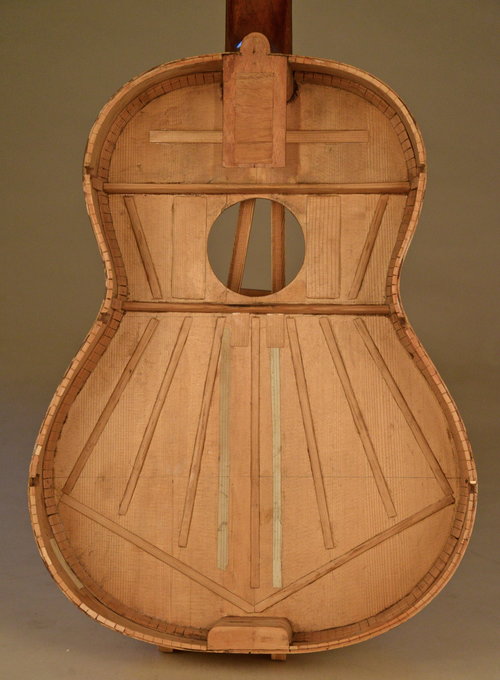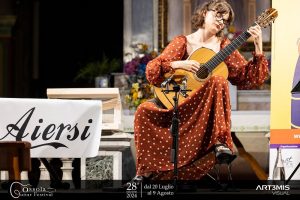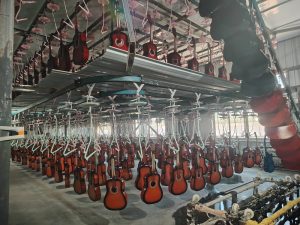

This guitar was made by Antonio de Torres Jurado ( Almeria, 1817-1892 ) in 1888. This guitar maker is regarded as the father of the modern Spanish guitar in its second period. He managed to break the inherited traditional standards of guitar making, in order to experiment as well as develop his own methods for guitar making, producing as a result an instrument of superb quality, still considered a great model. This creative skill led Antonio de Torres to the very first position among guitar makers. Being the very best, his instruments were praised and admired by guitarists of that time, such as Francisco Tárrega, Julián Arcas, Federico Cano or Miquel Llobet, among some others. Nowadays, Antonio de Torres is regarded as the most influential luthier on both the making and the structure of the Spanish guitar as we know it today. He is one of the greatest geniuses ever, indeed.
This guitar was one of the most remarkable masterpieces of the collection owned by the guitarist Federico Cano (1838-1904), shown in the International Exhibition in Sevilla (1922). Federico Cano was one of the most relevant musicians of his time, and the owner of the most important collection of guitars made by Antonio de Torres. Federico Cano was said to have influenced Torres´s making of the guitars, as the pieces are exclusive, personalized, different from the rest of the production by the luthier. It is worth saying that this guitar is perfectly described and backed up with documents in the book “Antonio de Torres, Guitarrero, su vida y obra” (Antonio de Torres, his life and work) by José L. Romanillos and it is declared National Heritage.
The woods chosen for this guitar are really select, impossible to be found nowadays. The spruce top is made up of three pieces: two big ones on the sides and a narrow one inserted in the middle. This arrangement is explained by the fact that there weren´t many boards thick enough back then. As a result, it was really difficult to make matching tops of the same size as nowadays. This is the reason why tops with three or four pieces are commonly found in guitars made by Antonio de Torres. The grain is narrow, straight and uniform all along the surface. Of a set of twenty-four guitars made of rosewood by Antonio de Torres, only seven of them are part of the second period of this guitar maker, and this is one of them.
The back and sides (made up of two pieces) are made of Brazilian rosewood, very homogeneous, with a lovely chocolate black tone. On the head of the guitar a silver nameplate can be found with the monogram “FC” (Federico Cano) and the name “La Invencible” (The Invincible one). The bridge has two spots of mother of pearl providing the guitar with both beauty and refinement.
The sound of this guitar is just unique. It is simply the best guitar we have had the chance to play in our whole life. The sound quality is unimaginable: the bass is incredibly deep, and the treble is sweet and penetrating, with an unrivalled sustain and scope. As regards the harmonics, we can just say they are pure magic.
The tension is soft and the height of strings on the saddle and fingerboard is just perfect. As a result, it is extremely comfortable to play. It is not easy to describe the whole potential the guitarist can unleash just by stroking the strings.
It´s really surprising to find a guitar of this time in such a good condition. There are some longitudinal cracks on back and sides, although some of them have been repaired already by brothers Ismael and Raúl Yagüe (renowed master luthiers from Barcelona, who have already restored several guitars made by Antonio de Torres). Other cracks are still to be repaired. We regret to say we can not offer a video of the guitar yet, as we usually do. We have decided not to do so until the guitar is completely restored, so we can show its full potential without taking any risks, such as crack spreading from guitar strings strain.













Latest Reviews